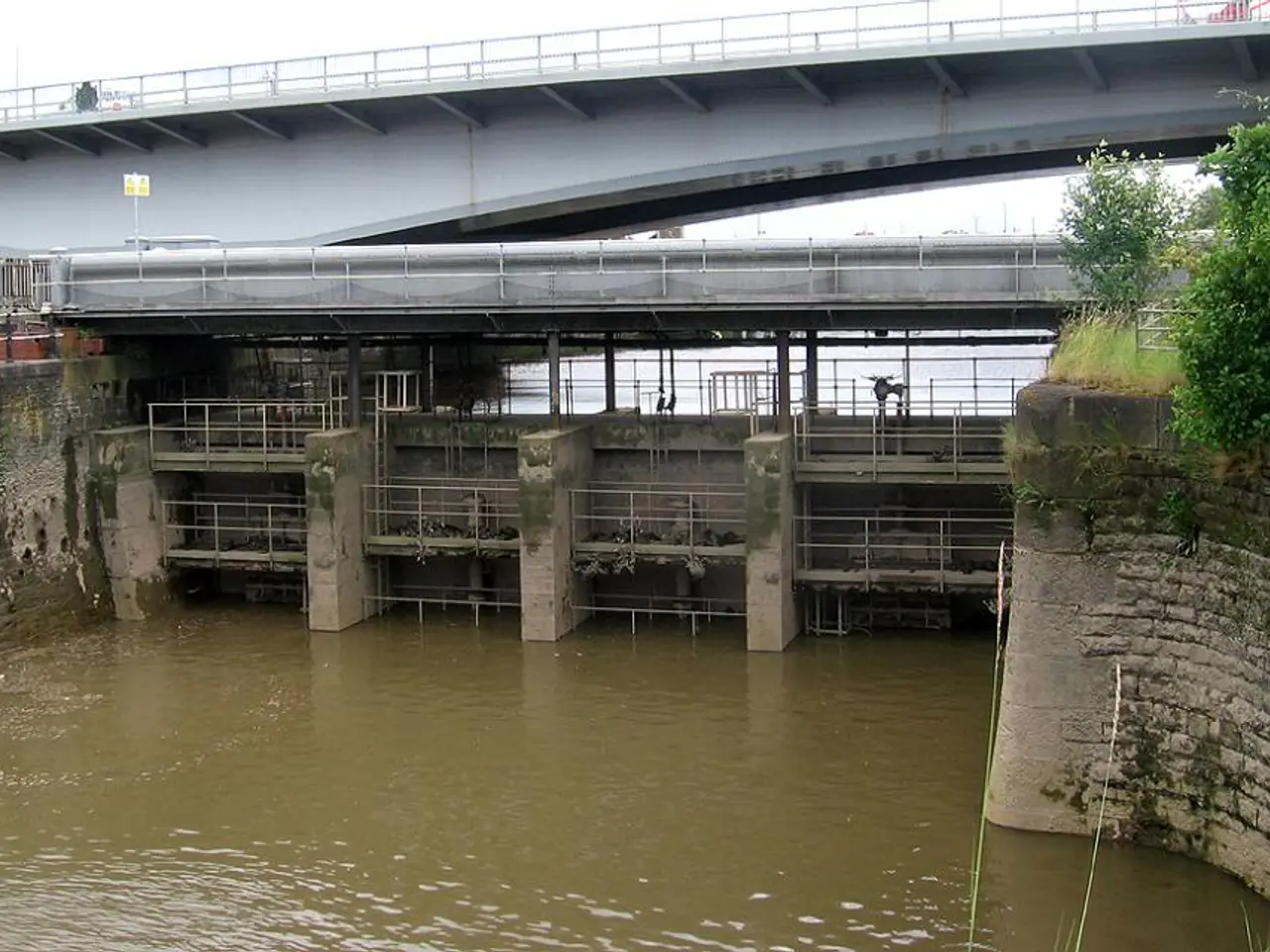Bipartisan House group unveils outline for reforming the permitting process
In a bid to address the growing demand for energy and improve the efficiency of the nation's power grid, a bipartisan House group has released a permitting reform framework. This initiative comes amid calls for addressing permitting reform in Congress this year.
The framework, aimed at simplifying the process for building transmission lines, pipelines, and power projects, includes several key measures. It amends the National Interest Electric Transmission Corridors process to allow for individual national interest high-impact transmission lines. This change is expected to streamline the approval process for such projects.
The framework also promotes grid-enhancing technologies to maximize capacity on existing transmission lines and expedites geothermal project permitting. It clarifies that Clean Water Act Section 401 certifications by states should focus only on water quality impacts of a project that result from the federally permitted or licensed activity.
Drew Maloney, President and CEO of the Edison Electric Institute (EEI), has called for reforms in the siting and permitting processes in a letter to leaders of the U.S. House and Senate. Maloney, along with other utility groups, supports the Standardizing Permitting and Expediting Economic Development Act (SPEED Act), which is at the heart of this reform effort.
The SPEED Act makes various changes to NEPA requirements and was discussed during a House hearing on Sept. 10. One of its significant provisions is the setting of deadlines for court reviews of permitting decisions. The framework also requires the Federal Energy Regulatory Commission to initiate interregional transmission planning while prohibiting allocating costs to customers who receive no or trivial benefits from the projects.
ClearView Energy Partners predicts that if the SPEED Act passed the House in its current form, it would face an uphill climb in the Senate due to potential filibuster. However, analysts suggest that the Act could be attached to "must-pass" spending bills, which could increase its chances of passage.
Not everyone is in favour of the proposed reforms. Durbin, a U.S. Senator, expressed concern that the stop-work orders issued by the Trump administration for offshore wind projects risk raising the cost of electricity and diminishing the ability to meet growing demand. Durbin urged for permits, once granted, to remain secure and reliable.
Democrats in the House expressed concerns that actions by the Trump administration undermined the prospect of compromise on permitting reform. Rep. Tom Suozzi, D-N.Y., stated that sky-high energy costs are a major concern for Americans and that electricity prices have risen by more than 6.5% in the last year.
Martin Durbin, U.S. Chamber of Commerce senior vice president for policy, also called for permitting reforms in a Sept. 3 blog post. He emphasized the need for reforms to reduce the time and cost associated with the permitting process, which he believes is a significant barrier to infrastructure development.
The framework also calls for reducing the statute of limitations for permitting lawsuits to one year or less, with 150-day limits for FAST-41 projects. It restricts judicial standing for litigating projects to parties who submitted detailed comments during public review.
In conclusion, the permitting reform framework aims to expedite the deployment of new energy infrastructure, which is crucial for meeting the growing demand for electricity and improving the efficiency of the nation's power grid. The framework, if implemented, could significantly reduce the time and cost associated with the permitting process, making it easier for utilities to build new transmission lines, pipelines, and power projects.
Read also:
- United States tariffs pose a threat to India, necessitating the recruitment of adept negotiators or strategists, similar to those who had influenced Trump's decisions.
- Weekly happenings in the German Federal Parliament (Bundestag)
- Southwest region's most popular posts, accompanied by an inquiry:
- Discussion between Putin and Trump in Alaska could potentially overshadow Ukraine's concerns








